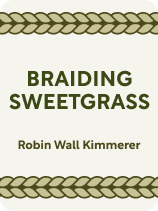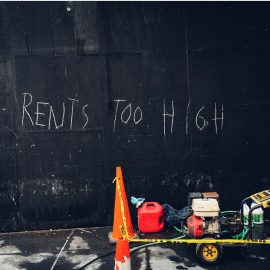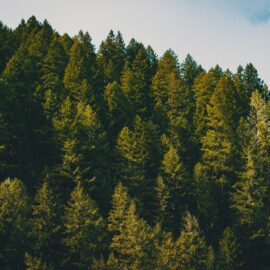

This article is an excerpt from the Shortform book guide to "Braiding Sweetgrass" by Robin Wall Kimmerer. Shortform has the world's best summaries and analyses of books you should be reading.
Like this article? Sign up for a free trial here.
What are the best quotes from Braiding Sweetgrass? What does Robin Wall Kimmerer say about honoring the Earth?
In Braiding Sweetgrass, Robin Wall Kimmerer contends that three sources of knowledge show us how to flourish by practicing mutual care. By doing this, we act in ways that help us as well as other people and the environment.
Continue reading for the most memorable Braiding Sweetgrass quotes.
The Best Braiding Sweetgrass Quotes
In a society troubled by overconsumption and disconnection, what are plants, Anishinaabe Indigenous worldviews, and science all trying to teach us about restoring balance? In Braiding Sweetgrass, Indigenous ecologist Robin Wall Kimmerer explains how these three sources of knowledge show us how to flourish through a practice of mutual care with other people and the natural world.
As our industrial society puts increasing stress on ecosystems and climate change threatens the well-being of us all, we must shift from a consumption and competition mindset to one recognizing our interdependence. Then we can practice mutual care to enable all living beings to thrive.
Below, we’ll look at a few Braiding Sweetgrass quotes that embody Kimmerer’s mindset.
“In some Native languages the term for plants translates to “those who take care of us.”
Kimmerer describes how plants act generously by providing many resources that meet the basic needs of other plants, animals, and people. In ecological systems, those gifts are continually replenished and recycled because they are interdependent with other species.
An example of a “generous” plant is the coconut tree. It provides leaves to build roofs and weave baskets, habitat for birds and bats, fiber from the coconut shell (useful in horticulture and for heating fuel), hydrating coconut water, coconut oil, shade, and food for humans and animals. These gifts cycle back to the plant when it is fertilized by the manure of animals that interact with it, when the leftover materials decompose and provide nutrients to the tree, or when humans spread the seeds to help it reproduce (the coconut itself is the seed).
In human communities, gift-giving encourages mutual care because when someone cooks a meal for us or gives a thoughtful gift, it makes us want to give back to the other person.
“Knowing that you love the earth changes you, activates you to defend and protect and celebrate. But when you feel that the earth loves you in return, that feeling transforms the relationship from a one-way street into a sacred bond.”
From the author’s perspective, mutual care is necessary for the long-term survival of humans and the environment because our well-being (human and non-human) is highly interdependent. In this sense, taking care of the environment is not about altruism, but rather sustaining the things that sustain us in return. For example, if we contribute to soil health by applying compost, reducing tillage, and growing cover crops, we ensure that the soil remains fertile to keep growing food for many generations.
“We need acts of restoration, not only for polluted waters and degraded lands, but also for our relationship to the world. We need to restore honor to the way we live, so that when we walk through the world we don’t have to avert our eyes with shame, so that we can hold our heads up high and receive the respectful acknowledgment of the rest of the earth’s beings.”
Practicing mindfulness with regard to resources encourages mutual care by influencing the way you invest your money and fostering gratitude. Try buying things that minimize harm to others and the environment. For example, buy local, organic produce that required fewer fossil fuels to get to you (because it wasn’t transported from far away by industrial vehicles) and did not have contact with toxic chemicals. Another strategy for being mindful is to mentally trace your items back to their original living form so that you appreciate the lives given to make those items. For example, you could acknowledge the trees that a wooden bed frame and coffee table came from.

———End of Preview———
Like what you just read? Read the rest of the world's best book summary and analysis of Robin Wall Kimmerer's "Braiding Sweetgrass" at Shortform.
Here's what you'll find in our full Braiding Sweetgrass summary:
- What plants, Indigenous worldviews, and science can teach us about restoring balance
- Why we must recognize our interdependence on others and the environment
- Strategies to help you practice mutual care in your own life






